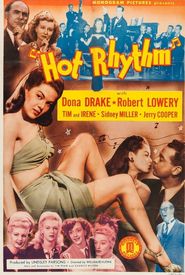Next person biography:
Dona Drake, born Eunice Westmoreland on November 15, 1914, in Jacksonville, Florida, was a talented African-American actress, singer, dancer, and bandleader who passed for white, claiming to be of Mexican descent, to advance her career in the entertainment industry. Despite her efforts, she did not achieve stardom, but her charisma and musical talents earned her a successful career in wartime music.
Early Life:
Dona was born to African-American parents, Joseph Andrew Westmoreland and Novella Smith Westmoreland. Her father, a restaurateur, moved his family to Philadelphia, where Eunice began performing at a young age. She developed her musical skills, playing instruments and entertaining patrons at her father's restaurant.
Career:
Dona's professional career began on Broadway and in nightclubs, where she worked as a chorine and gained recognition. She later changed her name to Rita Rio and formed her own all-girl band, which toured successfully. Dona also appeared in a few short films and two-reelers, sang on the radio, and worked on film sets, including the Eddie Cantor film Strike Me Pink (1936).
Paramount Years:
Dona's contract with Paramount Pictures, secured with the help of her friend Dorothy Lamour, led to her being renamed Dona Drake. The studio built up her Latino background, stating she was born and raised in Mexico City. Her film debut was in Aloma of the South Seas (1941),followed by appearances in Louisiana Purchase (1941) and Road to Morocco (1942).
Later Career:
After her contract with Paramount was dropped, Dona freelanced in several films, including Without Reservations (1946),co-starring with Kent Taylor in Dangerous Millions (1946),and appearing in Another Part of the Forest (1948) and Beyond the Forest (1949). She continued working in film and television until her retirement in 1957, due to health and emotional issues.
Personal Life:
Dona married Oscar- and Emmy-winning costume designer William Travilla in the 1940s. The couple had a daughter, Nia Novella, and remained married until their separation in 1956. Despite their separation, they never divorced and occasionally appeared together at functions.
Legacy:
Dona Drake passed away on January 18, 1989, due to pneumonia and respiratory failure. Her husband, William Travilla, died the following year. Dona's remarkable story, marked by her determination to pass for white and her eventual return to her African-American heritage, serves as a testament to her resilience and talent.













































